The Vibrant Coral Reefs of the Maldives: A Guide to Exploring an Underwater Paradise
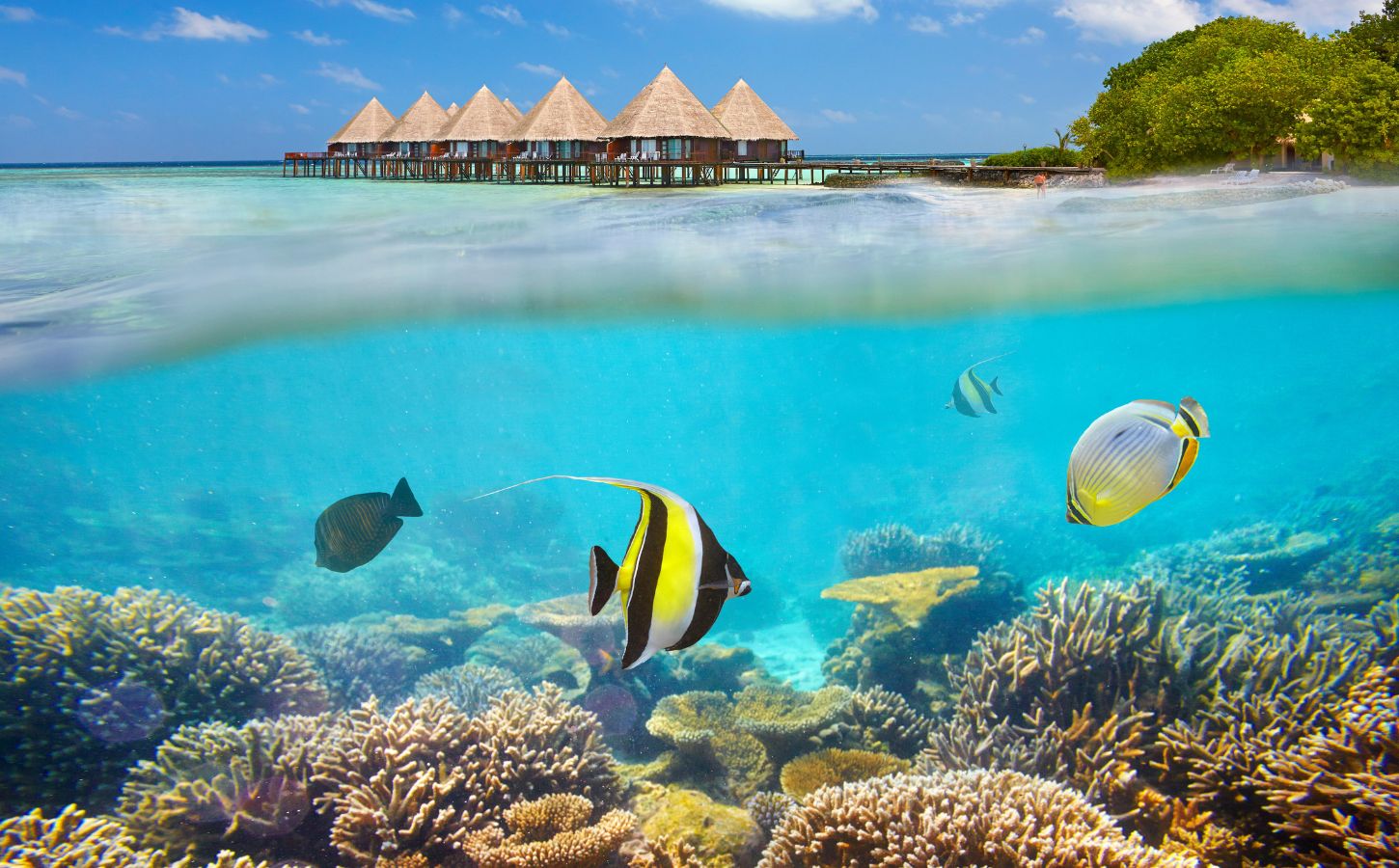
The Maldives is renowned for its pristine beaches, luxurious resorts, and above all, its breathtaking coral reefs. Located in the heart of the Indian Ocean, the Maldives boasts one of the most diverse and vibrant marine ecosystems in the world, attracting divers, snorkelers, and marine enthusiasts year-round. This article explores the beauty, diversity, and importance of the coral reefs in the Maldives, and how you can experience them responsibly.
1. Why Coral Reefs in the Maldives Are Special
The coral reefs of the Maldives are part of an extensive chain of atolls that stretch across 298 square kilometers. These reefs are a haven for countless marine species, from vibrant tropical fish to majestic manta rays and gentle sea turtles. The Maldives is home to over 1,000 species of fish, hundreds of species of coral, and a variety of other marine life, making it a prime destination for snorkeling and diving enthusiasts.
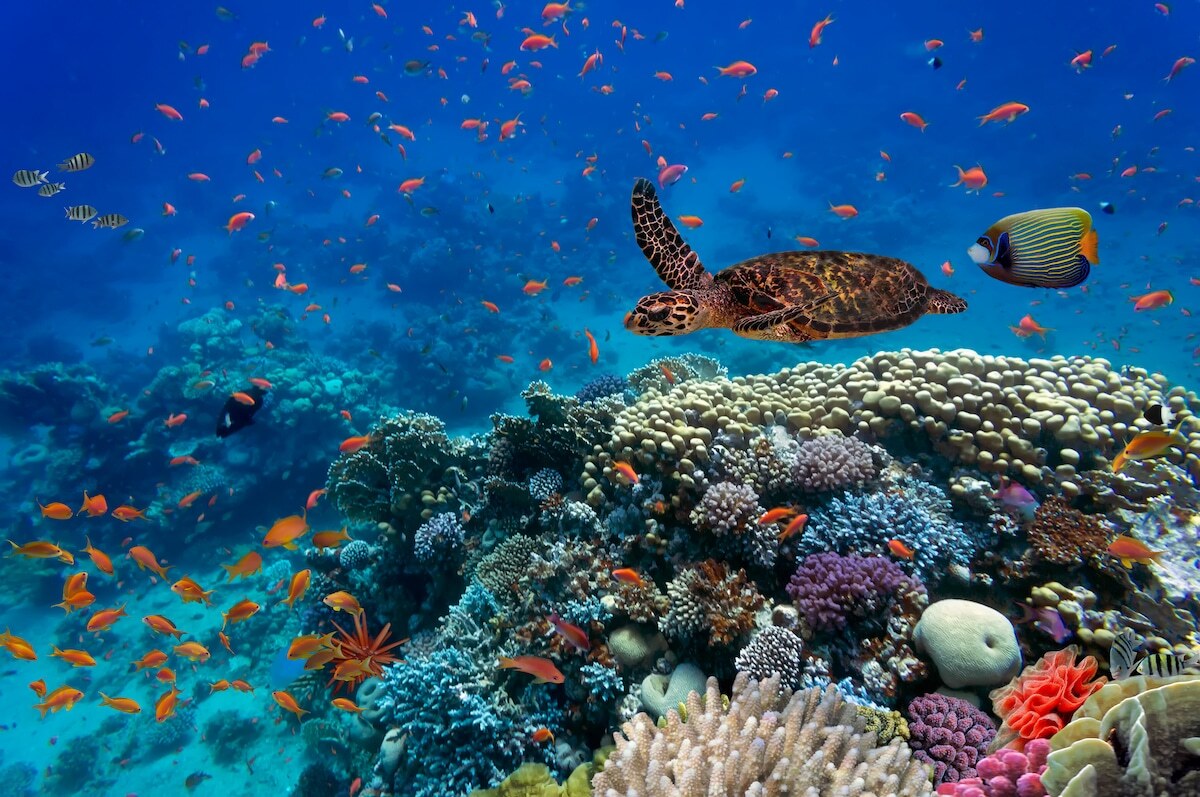
The reefs act as natural barriers, protecting the islands from storm surges and contributing to the unique beauty of the Maldives’ lagoon systems. Additionally, the coral reefs play a crucial role in the local economy by supporting fisheries and tourism, two key sectors in the Maldives.
2. Popular Coral Reefs and Diving Spots in the Maldives
Diving in the Maldives is a dream for many, thanks to its clear waters and diverse coral formations. Here are some of the most popular reefs and diving spots:
- Banana Reef: One of the most well-known dive sites, located in North Malé Atoll, Banana Reef offers divers a chance to explore vibrant coral formations and schools of colorful fish.
- Maaya Thila: Known for its incredible underwater scenery, Maaya Thila in the South Ari Atoll is famous for sightings of white-tip reef sharks, moray eels, and a variety of other fascinating marine life.
- Fish Head: Another notable dive site in the North Ari Atoll, Fish Head is ideal for those looking to see a variety of fish species in one spot, with stunning coral outcroppings.
- Fotteyo Kandu: Located in Vaavu Atoll, Fotteyo Kandu is known for its thriving coral landscape, with unique coral formations and abundant marine life, including pelagic fish and reef sharks.
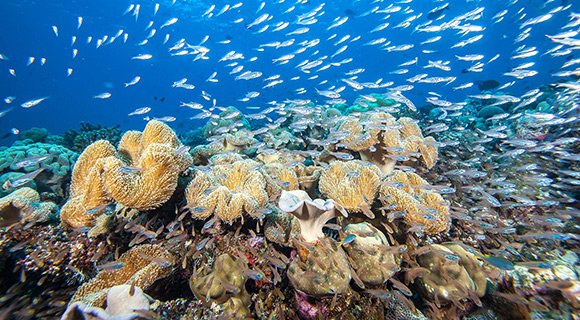
3. The Health of Maldives’ Coral Reefs: Challenges and Conservation Efforts
Unfortunately, coral reefs around the world, including those in the Maldives, are under threat due to climate change, ocean acidification, and human activities. Coral bleaching is a major issue caused by rising sea temperatures, which stresses corals and forces them to expel the algae they rely on for food, turning them white. Bleached corals are at risk of dying if temperatures don’t return to normal soon enough.
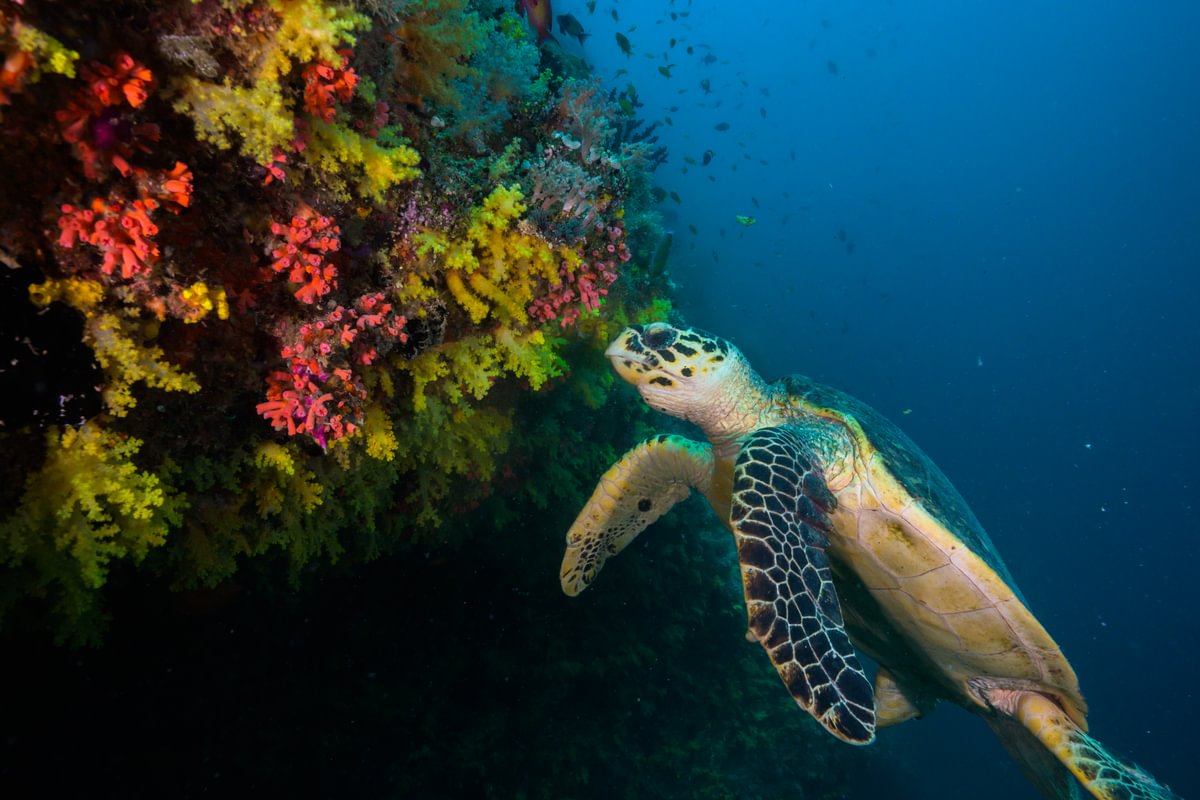
The Maldivian government and various environmental organizations are working to protect and restore coral reefs through several conservation initiatives. These include coral nurseries and reef restoration programsthat aim to grow and transplant corals to damaged areas. Marine protected areas have also been established to limit human activity and safeguard marine biodiversity.
4. Best Time to Explore Coral Reefs in the Maldives
The best time to explore the coral reefs in the Maldives is during the dry season, which typically spans from November to April. During this period, the waters are clearer, visibility is excellent, and marine life is abundant. However, the Maldives is a year-round diving destination, with each season offering unique experiences, including encounters with manta rays and whale sharks.
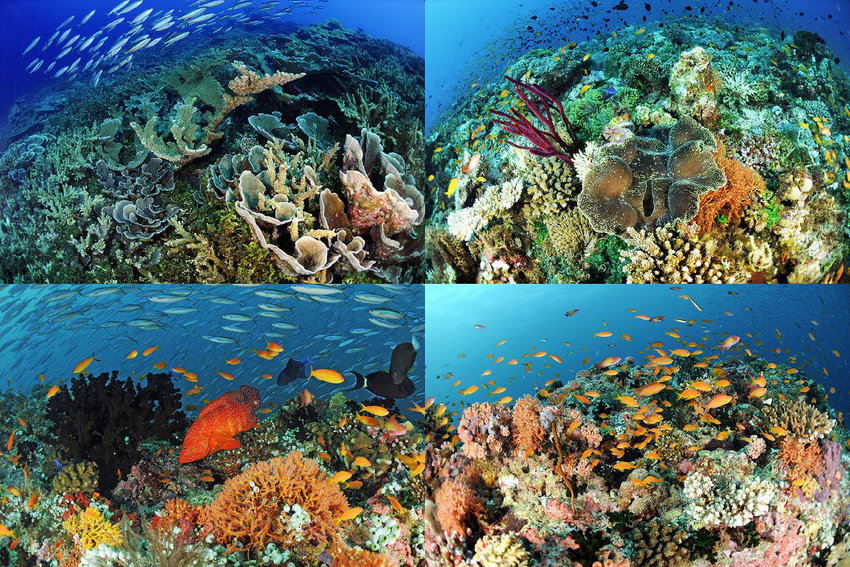
5. How to Enjoy Coral Reefs Responsibly
To ensure the protection and longevity of the Maldives’ coral reefs, it’s essential to practice responsible tourism:
- Avoid touching or stepping on corals: Corals are delicate organisms and can be easily damaged by contact. Maintain a safe distance when snorkeling or diving.
- Use reef-safe sunscreen: Chemicals in traditional sunscreens can harm corals. Opt for reef-safe sunscreen to help preserve these fragile ecosystems.
- Follow dive guidelines: If you’re diving, follow the guidance of experienced dive instructors who prioritize reef conservation and adhere to sustainable diving practices.
- Support eco-friendly resorts and initiatives: Many resorts in the Maldives are now actively participating in coral conservation programs. Choosing these resorts supports ongoing conservation efforts.
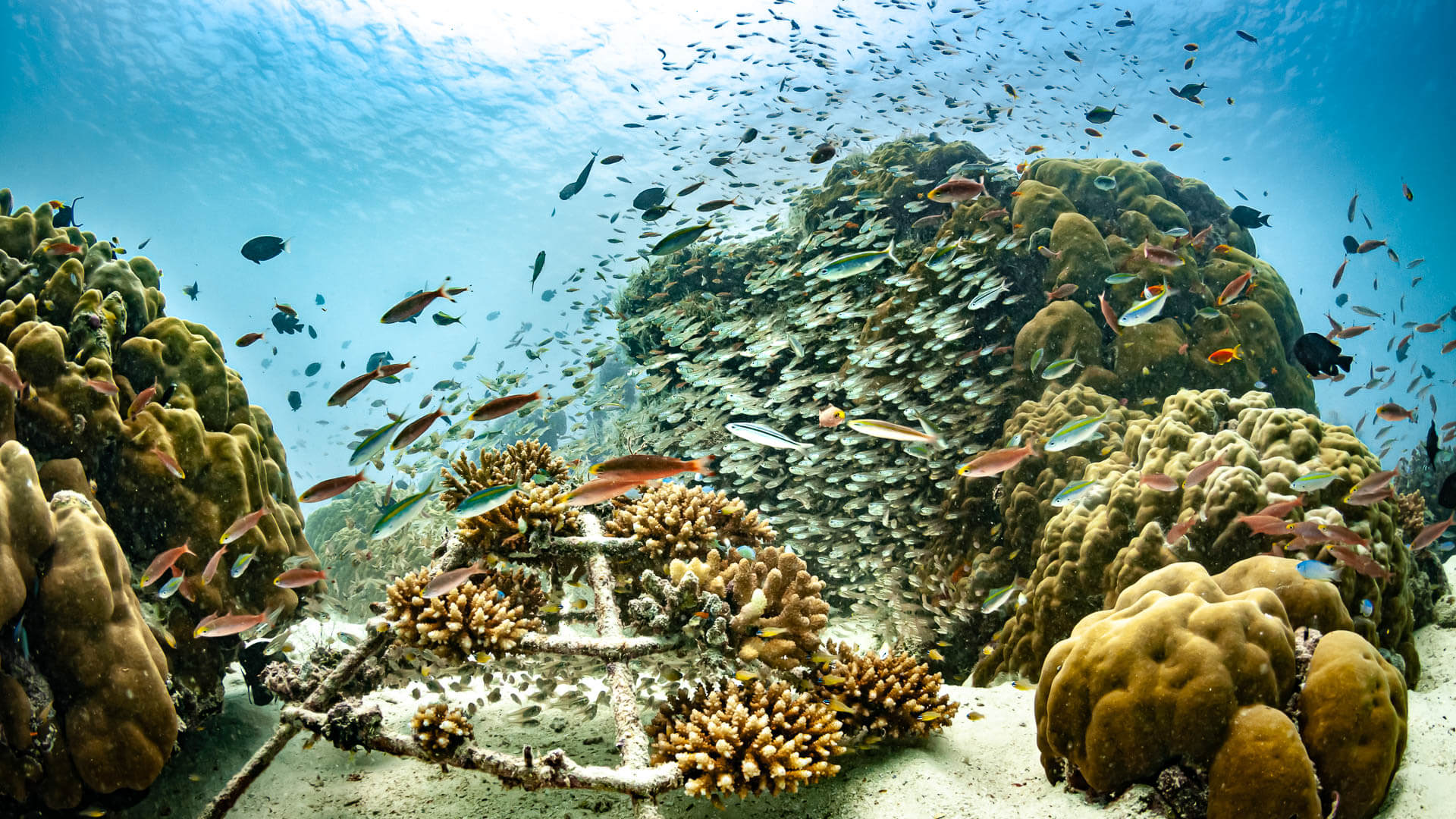
6. Coral Reefs and Their Role in the Maldives’ Future
The coral reefs in the Maldives are not only a vital part of the island nation’s ecology but also its culture and economy. Preserving these reefs is crucial for the future of Maldivian tourism, fishing industries, and coastal protection. Efforts from conservation groups, scientists, and tourists play a vital role in protecting this underwater treasure for future generations.
Final Thoughts
The coral reefs of the Maldives are a true marvel, offering visitors a chance to witness one of the most vibrant and diverse marine ecosystems on the planet. Whether you’re an avid diver or a first-time snorkeler, exploring the coral reefs of the Maldives is an unforgettable experience. By practicing responsible tourism and supporting conservation efforts, we can help protect these incredible reefs and ensure that future generations can continue to marvel at their beauty.
---
- News & Updates
- Travel Destinations
- Maldivian Tourism
- Lifestyle
- Personal Stories & Experiences
- Sports
- Water Sports & Adventure
- Accommodation & Stays
- Outdoor Activities
- Local Culture & Heritage
- Spa & Wellness
- Transportation
- Other
- Fishes and Marine Species
- Story
- Health & Wellness
- Recipe
- Life Lessons



